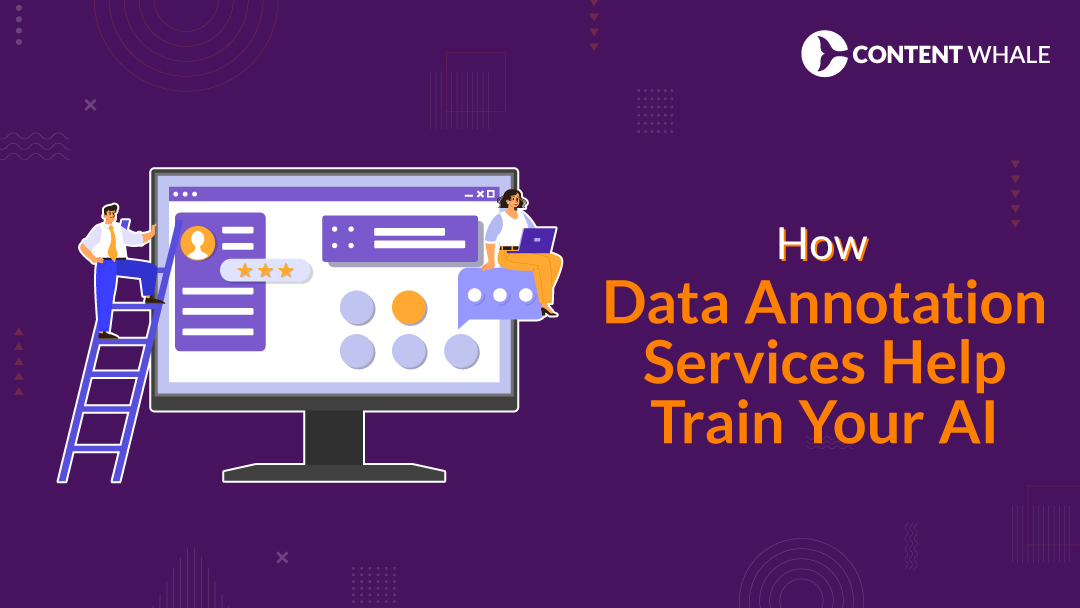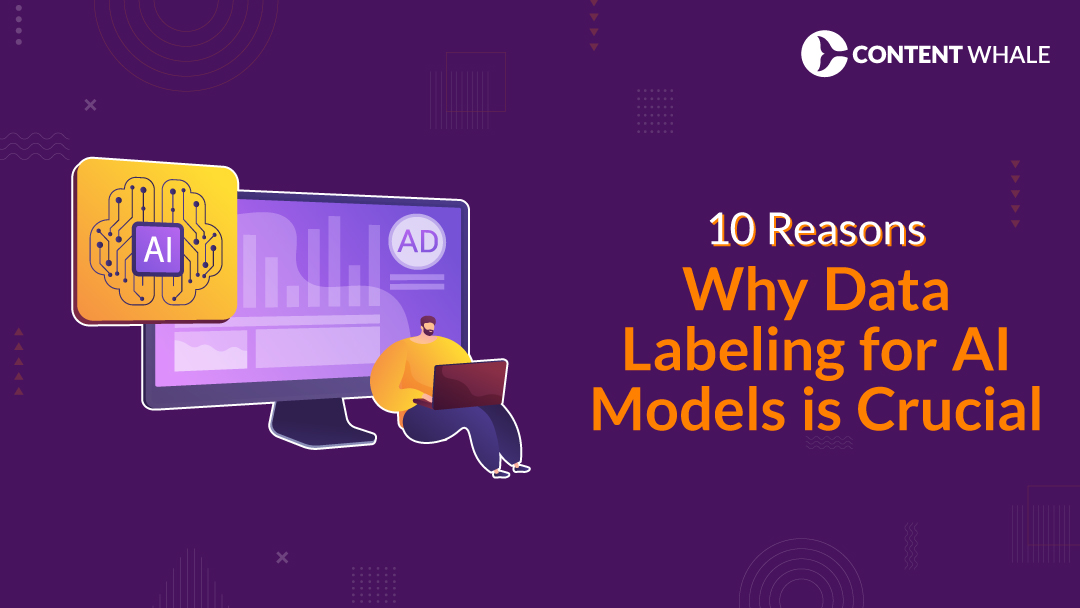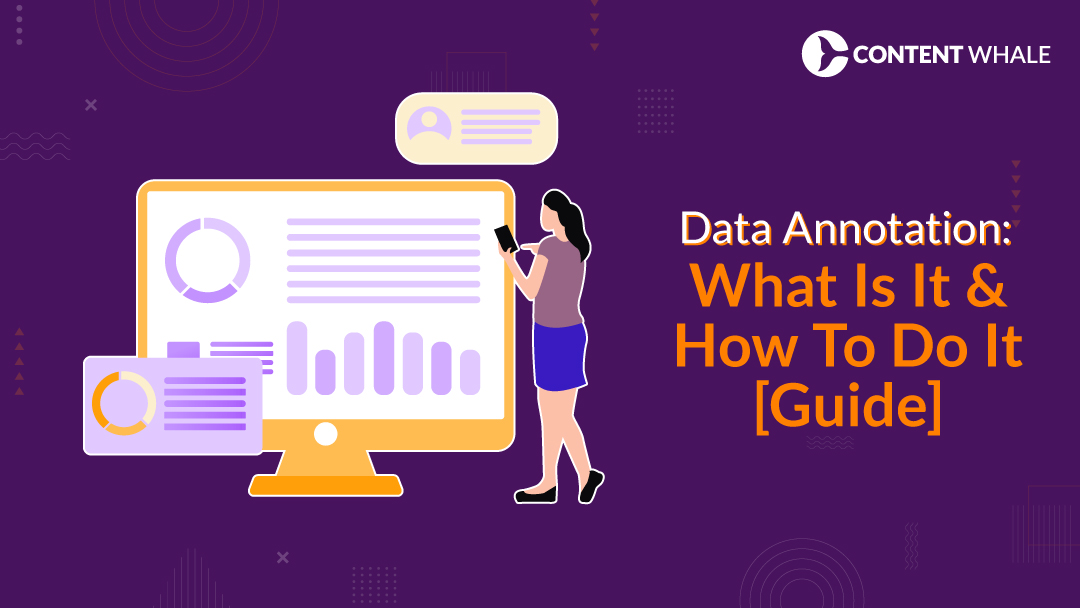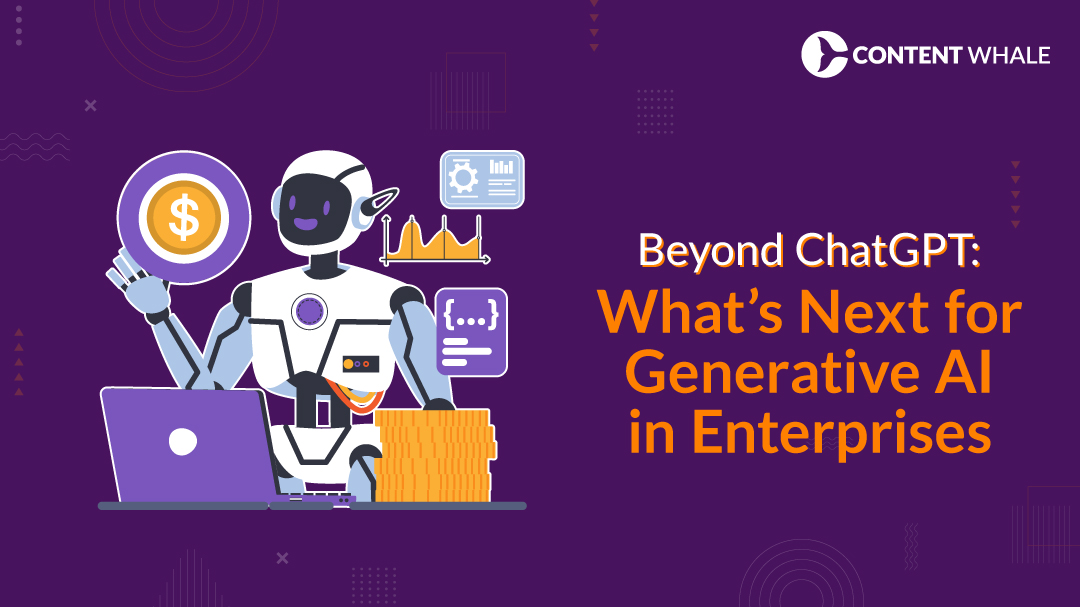AI models have become incredibly powerful tools, driving everything from personalized recommendations to autonomous driving systems. However, these models rely heavily on large sets of labeled data to learn and make accurate decisions.
This process of data annotation for AI involves labeling or tagging datasets—whether text, images, video, or audio—to make them understandable for AI algorithms.
The accuracy of AI predictions depends on the quality of this annotated data. Machine learning data annotation is critical in ensuring AI models are trained correctly, leading to better outcomes. This makes data annotation writing services essential for helping companies train their AI with high-quality labeled data.
1. Why Data Annotation is Critical for AI Training
AI models depend on vast amounts of data to make decisions and predictions. For AI to understand this data, it needs clear labels that guide it toward recognizing patterns and making accurate decisions. This is where data annotation for AI plays a pivotal role. Here’s why it’s essential:
- Pattern Recognition: AI systems use machine learning data annotation to learn from tagged data, which helps them identify objects, emotions, or actions. Without accurate annotation, AI models can’t learn effectively.
- Improved Decision-Making: Properly labeled data enables AI models to make informed decisions, whether in healthcare for diagnosing diseases or in autonomous driving for detecting obstacles.
- Industry Applications: Industries such as healthcare, autonomous vehicles, and retail benefit from AI training powered by high-quality annotated data. For example, image annotation services assist in object detection, while audio annotation for AI helps recognize speech patterns and emotions.
2. Types of Data Annotation for AI
Different types of data annotation play unique roles in training AI models. Each method is designed to teach AI systems specific tasks, such as recognizing objects, understanding speech, or analyzing text. Here’s a breakdown of the key types:
- Text Annotation Services: Text annotation is used to label words, phrases, or sentences for tasks like sentiment analysis, intent detection, and named entity recognition. It’s crucial for training natural language processing (NLP) models, helping AI understand language patterns.
- Image Annotation Services: Image annotation involves tagging visual data to help AI models detect objects, recognize faces, or classify images. Common techniques include bounding boxes, polygonal segmentation, and landmark annotations, all essential for applications like autonomous driving and facial recognition systems.
- Audio Annotation for AI: Audio data is annotated by labeling speech, identifying speakers, and classifying environmental sounds. This is vital for speech recognition systems, virtual assistants, and emotion detection software.
- Video Annotation for AI: Video annotation involves frame-by-frame tagging to recognize actions, track objects, and analyze events in motion. This method is essential in areas like autonomous vehicles and security surveillance, where real-time object tracking and action recognition are necessary for AI to make informed decisions.
3. How Data Annotation Services Improve AI Model Accuracy
The quality of annotated data directly impacts the accuracy of AI models. Well-labeled datasets ensure that AI systems learn from the most relevant and precise information, leading to better predictions and decisions. Here’s how data annotation services help train your AI and improve its accuracy:
- High-Quality Data Input: AI models require large amounts of accurately labeled data. Professional data annotation for AI ensures that the data is tagged correctly, whether it’s for text annotation services, image annotation services, or even more complex video annotation for AI tasks.
- Human vs. Automated Annotation: While automated annotation tools are fast and scalable, human annotators add a layer of precision that machines often miss. For example, machine learning data annotation for complex tasks like emotion detection or sentiment analysis requires human judgment to ensure the highest accuracy.
- Case Studies in AI Success: Real-world examples show the importance of quality annotation. For instance, autonomous driving companies rely on meticulously annotated images and videos to teach their AI systems to recognize objects and avoid collisions. Similarly, customer sentiment analysis in retail depends on accurate text annotation to understand consumer behavior patterns.
| # | Company | Key Services | Notable Features | Location |
| 1 | Content Whale | Text, image, video, and audio annotation services | Custom solutions for AI training and NLP projects | India |
| 2 | Macgence | Image, video, text, and audio annotation | High-quality, accurate annotations for AI training | Global |
| 3 | Scale AI | Comprehensive data annotation for large-scale projects | Combines machine learning with human expertise | USA |
| 4 | Appen | Text, image, audio, and video annotation | Global crowd of skilled annotators, scalable solutions | Australia |
| 5 | Lionbridge AI | NLP, computer vision, image, video, and audio annotation | Global network of annotators, robust quality control | Global |
4. Data Annotation Best Practices for Effective AI Training
High-quality data annotation is essential for training accurate AI models. To ensure consistency and reliability, companies need to follow best practices when working with data annotation for AI. Here are some key strategies:
- Clear Guidelines for Annotators: Provide well-defined labeling instructions to avoid confusion. Whether it’s for text annotation services or image annotation services, annotators should understand the task in detail. This minimizes errors and increases the efficiency of the process.
- Combining Human and AI-Assisted Tools: While human annotators offer precision, AI-assisted tools speed up the annotation process. Using machine learning tools in combination with human expertise ensures faster and more accurate results, especially in complex tasks like audio annotation for AI and video annotation for AI.
- Quality Control and Validation: Implement robust quality checks to ensure accurate labeling. This includes cross-checking annotations, conducting random spot checks, and having multiple annotators review difficult cases. Machine learning data annotation often requires these control measures to avoid misclassification.
- Iterative Feedback Loops: Continuous feedback between annotators and AI model developers helps fine-tune the annotation process, improving accuracy over time. Models can be retrained with corrected labels, enhancing their performance.
Conclusion
The role of data annotation services in training AI cannot be overstated. Whether it’s text annotation services for NLP models, image annotation services for object detection, or video annotation for AI in autonomous driving, accurate annotation is key to model success. Outsourcing these tasks to professional data annotation for AI providers ensures higher accuracy, faster processing, and a more reliable AI training process.
At Content Whale, we provide top-tier solutions for businesses looking to enhance their AI models through data annotation services. Specializing in startups and SMEs, our services are designed to be flexible and affordable. Whether you need image annotation services or video annotation for AI, we offer fast and customizable options that cater to your business’s unique requirements. With a client-focused approach, we ensure quick turnaround times without compromising on quality, helping your AI models perform more accurately and efficiently.
As AI continues to evolve, the importance of well-annotated data will only grow. Companies can stay ahead by investing in machine learning data annotation to improve the performance and efficiency of their AI models.
FAQs
1. What is data annotation in AI?
Data annotation for AI involves labeling or tagging data such as text, images, audio, or video to make it understandable for AI systems. It helps AI models learn patterns and make accurate predictions based on the input data.
2. How does image annotation work for AI models?
Image annotation services label objects or regions within an image using methods like bounding boxes, segmentation, and keypoint detection. This is vital for applications such as autonomous vehicles and facial recognition, where AI needs to recognize and differentiate objects in real-world scenarios.
3. Can data annotation be automated?
While some parts of machine learning data annotation can be automated with AI-assisted tools, human input is often necessary for tasks that require a higher level of understanding, such as sentiment analysis or nuanced image labeling.
4. Why is text annotation important for NLP models?
Text annotation services label words, phrases, or sentences to train natural language processing (NLP) models. This allows AI to understand the structure of language, detect sentiment, and extract relevant information from text data.
5. How do video and audio annotations improve AI learning?
Video annotation for AI tags objects and actions in video frames, while audio annotation for AI labels sound clips for speech recognition and environmental sound detection. These annotations help AI systems learn to interpret complex audiovisual inputs, improving performance in areas like security and virtual assistants.





